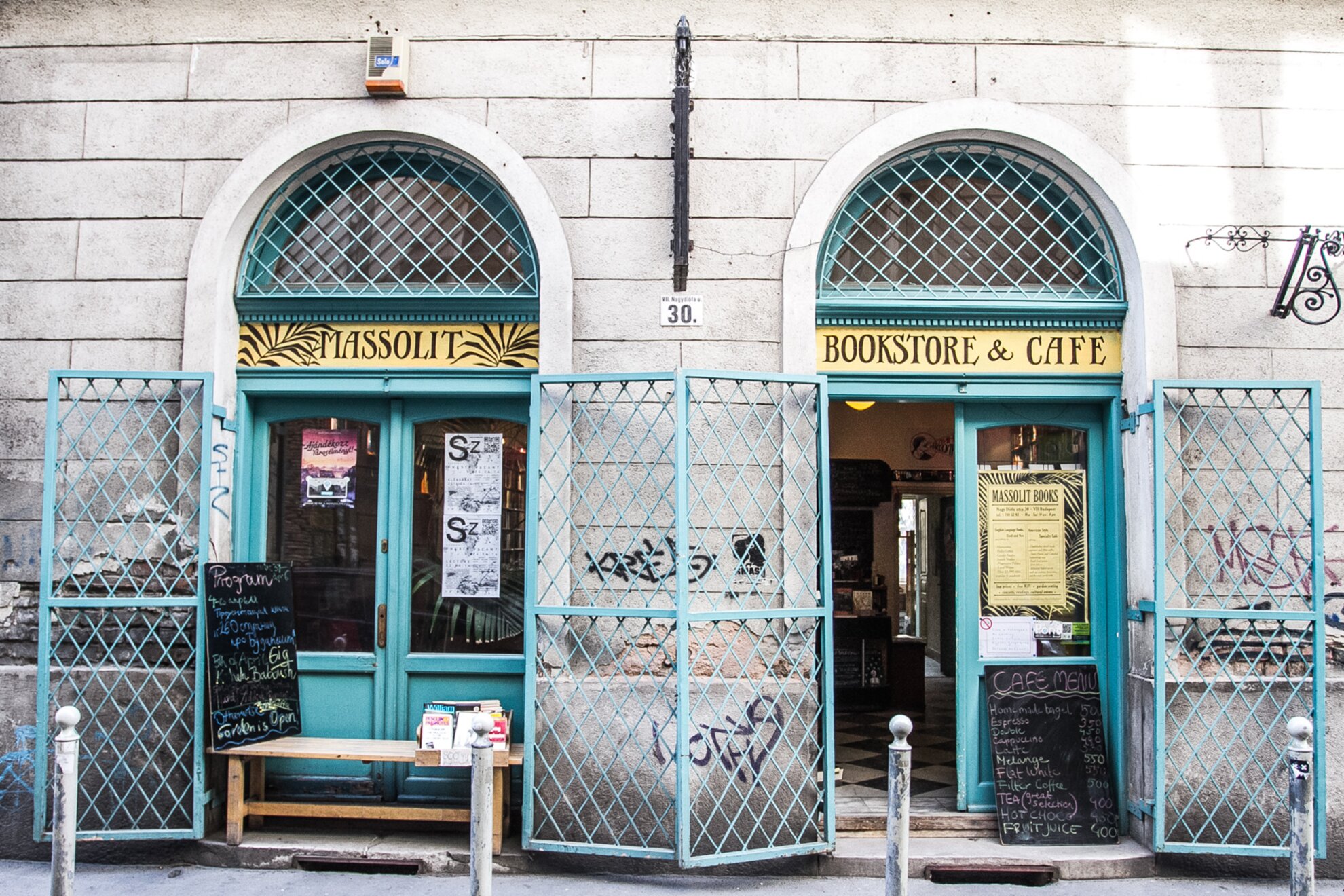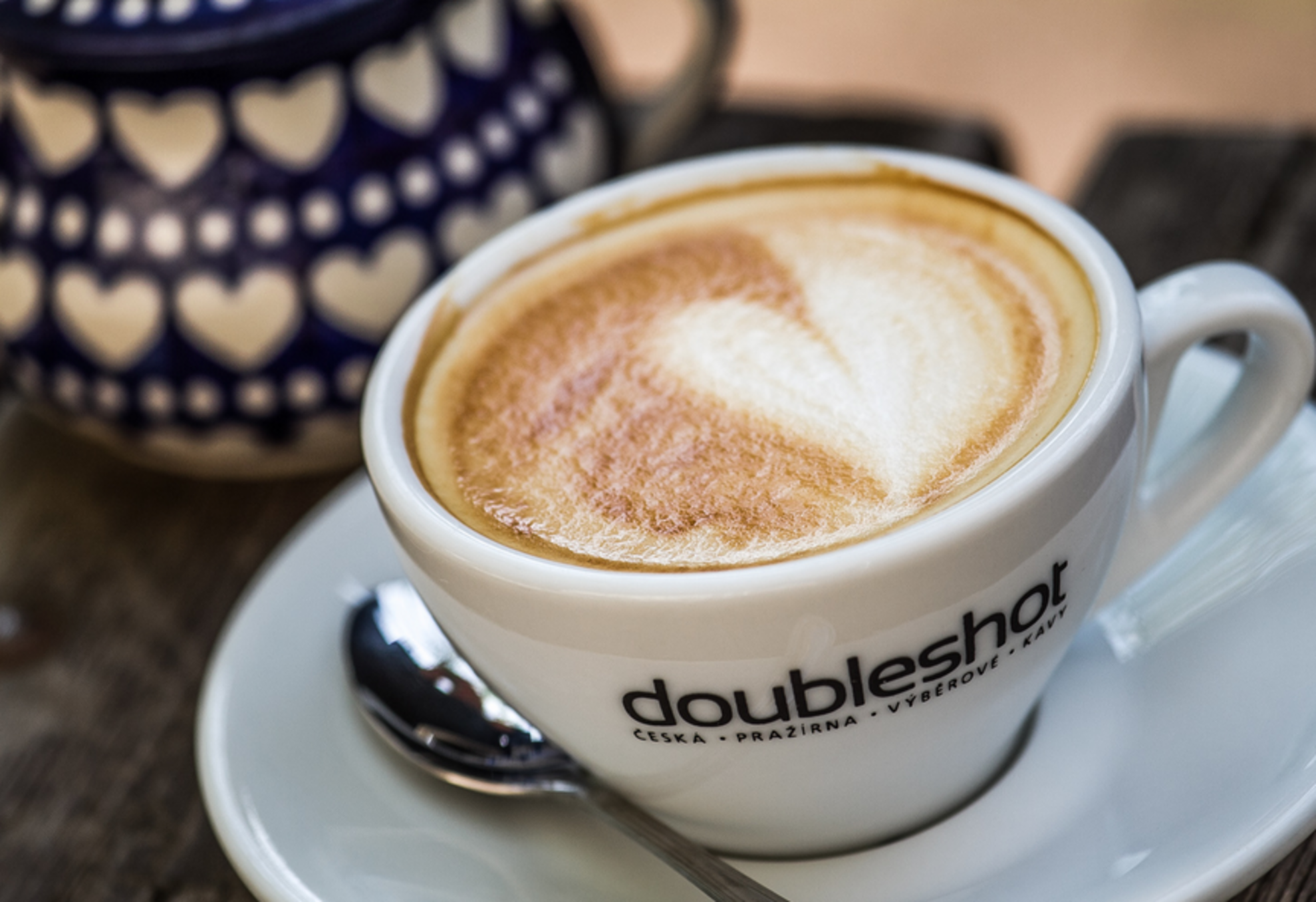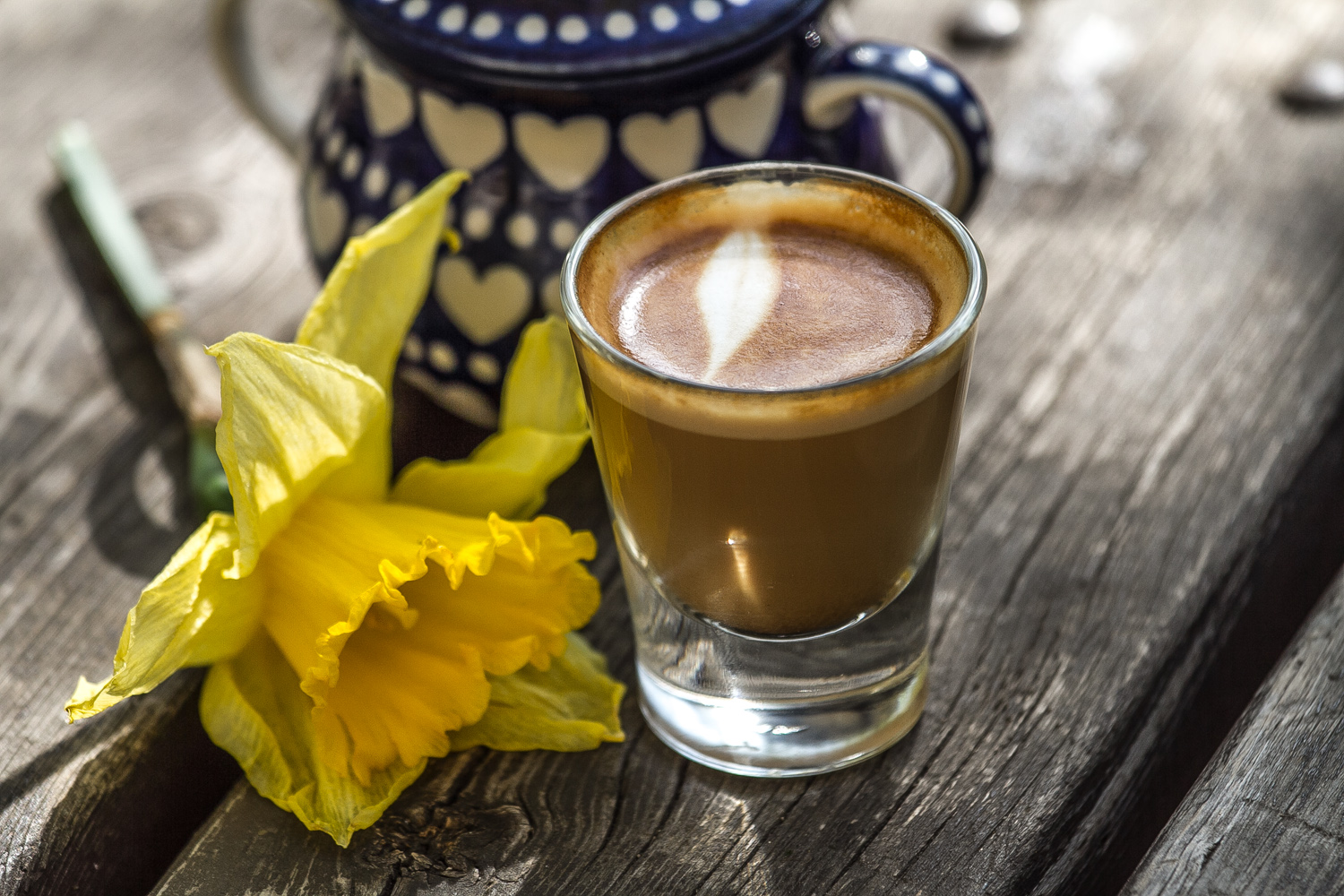Back in December the Krakow-based flagship store of Massolit Books opened its second location in Budapest, where one can indulge in everything from unique political science, history and fiction books to seasonal espresso and even spinach quiche. The director of the café, whose parents are Hungarian but who grew up in the US, moved to Budapest with the blessings of his family after finishing a university degree in literature.
The young man consumes six espressos on an average day, and if he’s not drinking coffee than he’s often reading up on it. Besides all of this he prepares American-style baked goods and in the winter carrot cake.
How did literature meet coffee, and why did they become best friends? WeLoveBudapest visited Massolit and asked these questions of the young coffee lover.

WLB: Your parents are Hungarian, but you grew up with them in the US. How did you come to live in Budapest?
ZP: My older sister moved here first, several years ago, in order to partake in a Master’s program. I visited her a few times and began to really like the city: the Hungarian culture, the language, the bars, the ruin pubs. Budapest is very friendly, more so than big American cities, where life is very expensive and jobs are extremely competitive. Budapest is much smaller and very centralized. Everything is on a smaller scale but there’s still lots of interesting stuff, both cultural and culinary. I came here right after finishing my university degree. At first I worked as a cook on the A38 ship, and then in February I began working at Massolit.

WLB: Liberal Arts and cooking are by themselves two separate fields. How did coffee get included in the bunch?
ZP: As an adult I have always drunk coffee, the love for which I inherited from my father. Growing up he was always searching for good espresso in the states, which was not always easy; he likes to call your typical American drip coffee “lötty,” or swill.
I began my search for the good stuff here as soon as I moved to Budapest. I also read a lot about coffee. There are some good books out there that can serve as bibles for baristas.
WLB: What is your opinion of coffee in Budapest?
ZP: Here 95% of cafés have a contract with a big Italian company. It is agreed upon that a certain amount of coffee must be sold for the café to be given a good espresso machine. For this reason the cafés are bound to sell one kind of coffee, which is by no means exciting. The quality can be good, but you get the same coffee as the place next door.

WLB: What excites you about coffee?
ZP: I really wanted to bring in a unique coffee from a top supplier, so I started writing to a Prague roastery through Printa café, which had already struck up a correspondence. When I arrived to Massolit in February as café manager, I knew that with a good machine and direct trade coffee, great things could be done.
WLB: How is direct trade coffee different? What do we need to know about it?
ZP: Direct trade is different in that the roasters travel out to the farms themselves to check out the coffee, which is a really new thing in the coffee world. There are places in Africa and Central America, for example, where three generations of farmers have grown coffee without tasting their own product. It’s not like growing apples or corn, which you can just pick and sample. It occurred to roasters that the product would improve if the farmers knew what kinds of flavors they were after. So the roasters go out to Colombia, Panama or Ethiopia with small roasting machines and taste the coffee, letting the farmers know what they are after. This is a very new process, only 5-10 years old, and there are no more than 25 such direct trade roasters in the world.

WLB: What kind of coffee can we expect at Massolit?ZP: Our roaster, Doubleshot, provides seasonal coffee, sourced from the places where the green (unroasted) coffee is fresh. Our house espresso changes four times yearly. Right now we have an Ethiopian single origin espresso and in the last few months we’ve had filter coffees from Kenya, El Salvador, Bolivia and Colombia. At any given time we have one espresso and two filter coffees on offer.WLB: How open is the Budapest public to such delicacies?ZP: I think that people are just starting to really get into it, and there are positive signs that they appreciate the stuff. A lot of foreigners come to Massolit for the books, but locals also drop by – in fact, we have more and more customers coming just for the coffee. You can by bagged beans here if you want to prepare coffee at home, and if you drink it in house a cappuccino will cost you 400 Ft and an espresso 300 Ft. For the barista, sharing with people the story of coffee is a big part of the job. In a restaurant the customer doesn’t have a chance to talk with the cook. In this sense, the barista is like a sommelier. I hope to show people a new way of thinking about coffee.

WLB: Besides preparing coffee you also bake, correct?
ZP: That’s right. I make the café’s cookies, brownies, spinach quiche and in the winter carrot cake.
WLB: It’s interesting that you studied literature but at the bookstore you are the coffee expert. Did you maintain your interest in books? What are you currently reading?
ZP: It’s great that it worked out this way. In American college towns, bookstore-cafés are very common - I’m lucky to be able to fulfill both passions here.
I still love to read, especially novels and literary non-fiction. Right now I’m reading “The Good Soldier” by Ford Madox Ford. At Massolit we have mostly English language books, plus a small Polish section and some books in German. We have used as well as new books and we also buy books from customers in exchange for cash or store credit.

WLB: How many books do you have in stock? And are people allowed to come just to read?
ZP: It’s difficult to say; we usually have about 19-20,000 titles but we are always bringing new books down from the Krakow store. Massolit is intended to be a place - with the café, tables and garden - where people can read, study, or just chat. Right now we are planning a quiet reading space specifically for students. We also have Wi-Fi, so students can prepare for exams or just hit the books.
WLB: I’ve heard that you also plan events. Do you have anything lined up?
ZP: We’ve had readings in the past as well as concerts – we’re always trying to use our creative energy to organize something. On September 13 there will be a poetry reading by the Australian poet Jennifer Harrison and the Hungarian poet András Imreh. You can learn more at our Facebook page.





